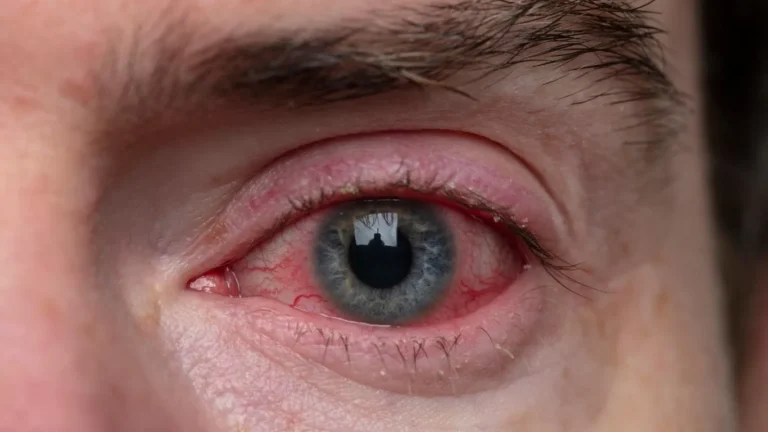Does Honey Help Asthma Naturally? Discover the Soothing Power
So, let’s talk about something sweet — literally. You’ve probably heard someone say, “Try a spoonful of honey, it’ll help your cough.” But what about something a bit more serious — like asthma? That’s a question I’ve heard a dozen times at the bedside over the years. Does honey help asthma naturally? It’s not just old wives’ tales we’re working with here. As a pulmonary nurse who’s seen just about every type of wheeze, gasp, and struggle for air, I can tell you this: honey might actually do more than just soothe a sore throat. Let’s unpack that — together.
Honey and Asthma: Ancient Remedy or Modern Miracle?

Before we dig into the research and clinical talk, let’s rewind a bit. Honey has been used in medicine for centuries. Egyptians, Greeks, even traditional Chinese medicine practitioners have praised it for its anti-inflammatory and antimicrobial properties. As a nurse, I find it fascinating when ancient wisdom overlaps with modern science — and honey is one of those crossovers.
Asthma, on the other hand, is not just about “wheezing.” It’s a complex chronic condition where your airways get inflamed, swell up, and produce extra mucus, making it hard to breathe. It’s no joke. When patients come into the ER with an asthma exacerbation, it’s often due to environmental triggers, poor medication adherence, or — believe it or not — stress. So where does honey fit into all this?
Natural Anti-Inflammatory Properties of Honey
Inflammation is at the root of every asthma attack. Your bronchioles are basically screaming for help. What honey offers is a natural way to potentially tone that down. Several lab-based studies have found that honey contains flavonoids and phenolic acids — natural compounds that can reduce oxidative stress and inflammation. In asthma, this is huge. Less inflammation = more open airways.
I’ve had patients tell me, “I just take a spoonful of raw honey at night, and my breathing feels easier in the morning.” While that’s not exactly peer-reviewed science, patient-reported outcomes shouldn’t be brushed off. In fact, they’re part of what we consider in real-world care.
Soothing Nighttime Cough & Chest Tightness
If you’ve ever woken up gasping at 2 AM with that dreaded chest tightness — you know how scary asthma can be. Nighttime symptoms are common, and for many patients, they’re the worst. Honey can act as a throat-coating agent, calming that irritating tickle that triggers coughing fits.
From my own bedside experience, I’ve seen parents give their kids a teaspoon of honey (never under age 1, of course) before bed and swear by its soothing effect. And truthfully, in non-emergent cases, I often tell patients, “Try it — as long as you’re also sticking with your inhalers.” It’s not either-or, it’s both-and.
Scientific Studies: What the Research Actually Says

Let’s pull out the lab coat for a second. Several small studies and animal models have shown that honey may reduce airway inflammation, mucus production, and even bronchial hyperresponsiveness. One study published in the Journal of Medicinal Food noted improved airway clearance and symptom relief in rats with induced asthma symptoms after they were given honey. Now, we’re not rats — but it’s a start.
Another clinical trial out of Malaysia tested a honey-based herbal formula in adults with mild asthma. Participants reported better symptom control over the course of 8 weeks. Again, it’s not conclusive proof, but it’s enough to raise an eyebrow. And hey — if it helps and doesn’t hurt, and you’re not allergic to honey — why not explore it?
Important Considerations Before You Try It
- Never substitute honey for prescribed asthma medications. This one’s non-negotiable. Your rescue inhaler and maintenance meds are life-saving — honey is complementary, not a replacement.
- Use raw, organic honey if you’re going to try it. That stuff in the plastic bear? Not the same. Raw honey retains more of its beneficial enzymes and compounds.
- Consult your healthcare provider — especially if your asthma is moderate to severe.
- Start small — try 1 teaspoon once or twice daily and monitor how you feel.
My Own Take as a Pulmonary Nurse

I’ve seen enough to know this: asthma is not one-size-fits-all. What works for one person may not touch the symptoms of another. But I also believe in integrating natural remedies when appropriate. If you’re asking yourself, “Does honey help asthma naturally?” — the honest answer is: it might, especially when used thoughtfully alongside your treatment plan.
I’ve recommended honey to plenty of my patients — not as a miracle, but as a support tool. And more often than not, they’ve come back saying it made breathing feel just a bit easier. That alone is worth paying attention to.
Real-Life Cases: When Patients Swear By It

One thing I’ve learned over the years as a pulmonary nurse? You can read every textbook out there, but real-life stories hit differently. I remember a middle-aged patient, Mr. Jackson — a retired teacher with mild persistent asthma. He came in regularly for checkups and always had a dry, nagging cough that worsened at night. In one visit, he casually mentioned, “You know, I started taking a teaspoon of honey with turmeric before bed, and it’s been a game changer.”
Now, we didn’t change his medication or tweak anything clinically — just that little ritual. And sure enough, when he came back a few weeks later, the chronic cough had eased up. That was enough for me to dig a little deeper into the question of whether honey helps asthma naturally, especially when paired with other natural anti-inflammatories like turmeric or ginger.
And he’s not the only one. I’ve had parents swear by honey for their children’s nighttime symptoms (again, always over age 1). Elderly patients love it in warm tea, often paired with lemon or a hint of cinnamon. It’s these firsthand anecdotes that keep this conversation alive — and relevant.
Pairing Honey With Other Natural Remedies
It’s not just honey doing all the heavy lifting. Sometimes, it’s the combo effect that really brings results. Here are some popular pairings I’ve seen patients use — with surprisingly positive feedback:
- Honey + Ginger: Ginger has bronchodilator effects and anti-inflammatory perks. Mix it with honey for a warm tea or paste. Many asthma patients say it helps reduce that tight-chest feeling.
- Honey + Turmeric: Turmeric contains curcumin, a natural anti-inflammatory that might enhance the effects of honey. Just add a pinch to your honey spoon — it does wonders.
- Honey + Lemon Water: A classic! Great for mucus-thinning and soothing throat irritation. I often recommend this for patients during allergy season when asthma tends to flare up.
Quick tip from me? Stick with warm water — not boiling — so you don’t kill off honey’s natural enzymes.
Can Honey Reduce Asthma Triggers Over Time?

Now, this is the big question. Can regular honey intake actually reduce the frequency or severity of asthma symptoms over time? While the research is still evolving, there’s a theory around immune modulation. Raw honey, especially local honey, contains trace amounts of pollen. Some suggest that this low-level exposure may help desensitize the immune system — kind of like a natural version of allergy shots.
To be totally clear, this idea is still controversial and not fully backed by large-scale clinical trials. But the concept makes sense — at least anecdotally. I’ve had patients with both asthma and seasonal allergies tell me they felt better overall after incorporating a small amount of local honey daily. Coincidence? Maybe. But when the patient is breathing better and sleeping through the night, I don’t argue with results.
Potential Risks and Allergic Reactions
Let’s not sugarcoat it — honey isn’t for everyone. And while it’s natural, that doesn’t mean it’s harmless. Here are a few things to watch for before adding honey to your routine:
- Allergic Reactions: Rare, but real — especially if you’re allergic to pollen or bee products. I’ve seen one mild reaction in clinic involving hives and scratchy throat.
- High Blood Sugar: Honey is still sugar, folks. If you’re diabetic or insulin-resistant, talk to your provider before using it daily.
- Infants Under 12 Months: Absolute no-go. Honey can contain spores that lead to infant botulism — something we NEVER want to risk.
As always, talk with your doctor or asthma specialist before starting any new remedy, no matter how natural it may seem. What’s safe for one person might be risky for another — and that’s especially true in chronic conditions like asthma.
Why the Soothing Power of Honey Works — From a Nurse’s Viewpoint

You know what’s interesting? In the hospital setting, we focus so much on acute treatment — bronchodilators, corticosteroids, oxygen therapy — that we sometimes overlook the simple, supportive things people can do at home. That’s where honey shines.
Does honey help asthma naturally? In many non-emergency cases, I’d say yes — particularly when used consistently and smartly. It doesn’t replace your meds, but it sure can complement them. It brings comfort. It reduces irritation. It soothes the airway. And for some, it just makes living with asthma a bit more manageable.
I’ve worked with patients who were overwhelmed by side effects from long-term steroid use. For them, adding in natural supports like honey helped them feel more in control. It gave them something simple to do — and that sense of agency matters more than we give it credit for.
Integrating Honey Into Your Daily Routine
So how do you actually use honey in a way that could benefit your asthma? Here are a few easy, patient-tested methods:
- Morning Start: 1 tsp of raw honey on an empty stomach. Many say it helps clear the airways before the day begins.
- Evening Wind-Down: Honey + herbal tea (like chamomile or thyme) about 30 minutes before bed.
- During Allergy Season: Local honey — 1 tsp daily — to potentially help reduce pollen sensitivity.
- With Warm Water + Lemon: Great after exposure to triggers like smoke, dust, or pet dander.
These aren’t magic fixes — but they’re easy, inexpensive, and gentle on the body. In my experience, that’s often exactly what chronic asthma management needs: a mix of strong science and soothing support.
When Honey Might Not Help — Knowing the Limits

Okay — I’m all about natural remedies when they’re used wisely. But we also have to get real about this: honey isn’t a miracle fix. And as someone who’s worked with severe asthma cases in emergency settings, I have to be honest — when someone’s struggling to breathe, no amount of honey is going to open up their airways like albuterol will.
So here’s where I draw the line: if your asthma is classified as moderate to severe, or if you’ve had recent ER visits, ICU stays, or rely on a nebulizer regularly, honey should only be a sidekick, not your main plan. And yes — I’ve had to say this gently to a few patients who were trying to ditch their meds altogether. I totally get the motivation — side effects, costs, or just wanting to go natural — but airway inflammation is no joke.
That said, honey does still have a role. Think of it like yoga or clean eating: it supports your body, calms your system, and works best alongside the big tools — not instead of them.
Signs It Might Be Working For You
How do you know if honey is helping your asthma? Here’s what I tell my patients to track:
- Less frequent nighttime coughing or waking up short of breath
- Reduced use of your rescue inhaler (without other changes)
- Less throat irritation and mucus buildup
- Feeling more comfortable in cold, dry air (a common trigger)
Always keep a symptom journal if you’re trying something new like this. I’ve seen firsthand how small tweaks in routines can make a difference — but it’s easy to overlook progress if you’re not tracking it. Even a quick note in your phone can be a game changer.
What Type of Honey Works Best?

This one comes up constantly: “Bianca, is there a special kind of honey I should use?” The short answer is yes — not all honey is created equal. I usually recommend:
- Raw Honey: Unprocessed, unpasteurized honey keeps more of its natural enzymes and antioxidants.
- Local Honey: Some believe this can help desensitize your system to local allergens — which could help reduce asthma triggers over time.
- Dark Honey (like Buckwheat): Higher antioxidant content, thicker consistency — great for coating the throat and calming coughs.
Manuka honey gets a lot of hype, and while it does have strong antibacterial properties, it’s also expensive. Honestly, I’ve seen just as many people benefit from regular, high-quality raw honey — without paying $40 a jar.
Where to Find Good Honey
Skip the plastic bear. Look for honey that’s labeled as “raw” or “unfiltered,” and try to source it locally if possible. Farmers markets, health food stores, or even small local co-ops usually carry the good stuff. Just make sure it hasn’t been heated or pasteurized — that process kills off many of the beneficial compounds.
Does Honey Help Asthma Naturally? Final Thoughts From My Nursing Lens
I’ve seen enough patients over the years to know there’s no one-size-fits-all answer — especially when it comes to chronic conditions like asthma. But if you’re still asking “does honey help asthma naturally?” here’s my take:
Yes — when used wisely, consistently, and alongside your regular care plan. It’s not about ditching your meds or hoping for a cure in a jar. It’s about supporting your system in a gentle, comforting way that feels manageable and sustainable.
And there’s something beautifully empowering about that. As nurses, we talk a lot about patient-centered care — and this is what that looks like: small, intentional actions that make breathing just a little bit easier. That make nights a little more restful. That give people options beyond the pharmacy.
If you’re curious, give it a try. Start slow. Keep a journal. Talk to your doctor. And most of all — listen to your body. It’s always trying to tell you something.
References
Disclaimer
This article is intended for informational purposes only and does not constitute medical advice. Always consult with a licensed healthcare provider before making changes to your asthma management plan or starting any natural remedy, including honey. While this article is written by a licensed pulmonary nurse, it does not replace individualized medical care. Never delay or ignore professional advice based on information from the internet — even the helpful kind!

Bianca Nala is a compassionate Nurse Practitioner with a strong background in primary and respiratory care. As a health writer for Healthusias.com, she combines her clinical expertise with a talent for clear, relatable storytelling to help readers better understand their health. Bianca focuses on topics like asthma, COPD, chronic cough, and overall lung health, aiming to simplify complex medical topics without losing accuracy. Whether she’s treating patients or writing articles, Bianca is driven by a single goal: making quality healthcare knowledge accessible to everyone.







